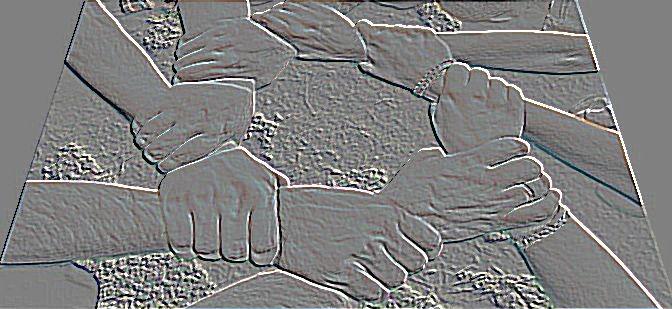It doesn’t matter if capital is concentrated in a few hands, as long as these are the right hands. 
This is my answer to the outcry of Mr Piketty in his monumental study about the growing inequality in the possession of capital. As others have signaled Pikettys’ study misses the central idea of Marx: that capital is a social relation. As long as the character of this relation is not altered, the redistribution of capital over more people or even acquisition of it by the state will not help us one bit. If possible at all.
This fundamental relation is, as is well known, the exploitation of labor to extract profit, and using this profit for accumulating capital. Hence growth and concentration are inevitable in this system.
It seems that somehow we cannot do away entirely with profit (and thus with exploitation), as with it we will kill creativity, flexibility, initiative and the market. So the options for transformation are limited. My suggestion is to transform “individual profit” to “social profit” in other words: the private (personal) ownership of capital transforms into social ownership. The social character of this profit should not be thought of as a variable of the state or the entire community but of individual producing/consuming systems: enterprises, including all their functions and functionaries. The social character of the profit/ownership means that:
(1)All the participants in the system somehow have their interests represented in the organ that decides on the allocation of the profit.
(2)This organ can decide to assign all or part of the profit to goals outside the system and not for sustaining or growing the system itself.
The second condition means that the place of the system in the whole and the relations with other systems of the same order should be perceived and accounted for.
In principle enterprises will start from individual persons or small groups, using their talents to offer an ordinary product or service or produce works of art or an invention. It isn’t possible nor desirable to alter the profit/ownership from individual to social on this level. Not only is the “profit” often more or less equal to income from labor, the main reason is that on this small scale relations between the participants are mostly direct, thus ensuring the social character of the enterprise. The problems start with growth and success, when the relation becomes indirect. In old terms: when the commodities start to have a fetish-character. Even then it’s not always wise or necessary to engage in another kind of ownership. The necessity for such a step comes into view when ownership is getting diffuse in a large number of shareholders or when it becomes a part of an investment portfolio or other financial institution. Being managed to maximize profit will be almost certain by then. Except for the case when the successor(s) manage or otherwise actively participate in the enterprise, this also will be the case when capital is inherited.
“Social” ownership is not equal to ownership by the employees. There are more stakeholders then the ones in pay of the enterprise. It would narrow the possibilities to accommodate to changes in circumstances because of the conservatism that is inevitable when everyone wants to keep his position. And it will turn the employees into small ordinary capitalists going for the maximization of profit. Thus social ownership should be in special holdings directed by an elite, which should be selected and elected by the participants/stakeholders in democratic processes. On the outset, this elite will have to be “self”-recruited among the owners and management as part of their own decision to socialize their capital.
This socialization means they disinherit their offspring and transfer the ownership to the aforementioned special holdings. It is possible this transfer will be without any compensation demanded but more often some demands can and will be made. One is getting a private income for the previous owner and his relatives and offspring with no obligation in return. It is important that these compensations are always expressed as a part of the share in realized profit, and never as an absolute amount or a percentage of the capital brought in. Of course the part can’t be 100% of the share and the duration (for offspring or other beneficiaries) can’t be indefinitely. Another one is participation in the management of the holding. In that case an evaluation has to take place of the qualities offered.
How is such a socialization of capital to come about? As the above suggests, the ones who bring in their capital need not suffer any personal discomfort from their move. Their offspring and relatives can to a large extent be cared for in the same way or maybe even better. So that aspect shouldn’t withhold anyone to make such a move.
My thought is that the more enlightened part of the bourgeoisie and the upper middle class feels that the present form of capitalism is under a great strain and possible or even likely will lead to disaster. One of the aspects being the too great inequalities it generates. Instead of waiting for disaster or rebellious uprisings or both, probably followed by not so nice disownment by the state there is a chance that some of them see this as a solution worth trying. This group needs not be very big; in fact it could be very small, although the capital volume should be substantial. Then, if this move is successful more people will be attracted by the success, adhere to it and social and probably political pressure to make the move will rise, finally ending with legal obligation for the last minority holding on to the old model.
This is a follow-up/translation of my previous Dutch blog SoLiDe Kapitaal – een voorstel